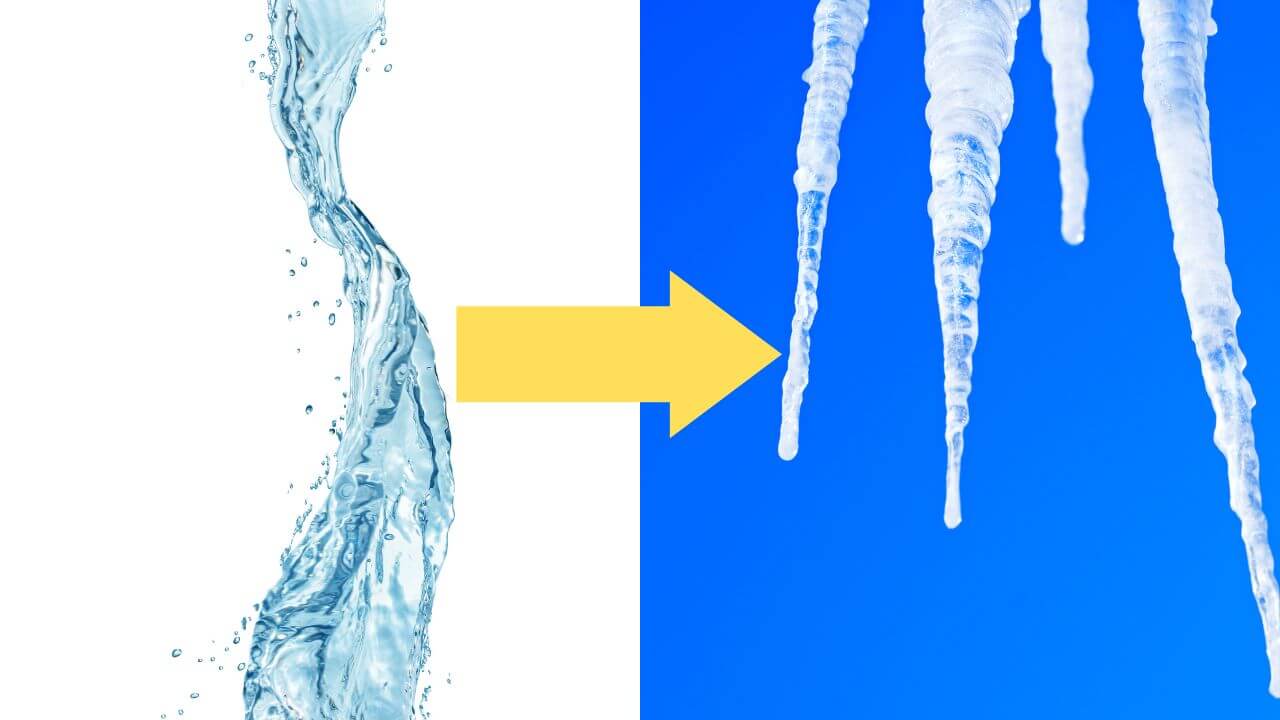The amount of time it takes for water to freeze depends on several factors, including the temperature of the water and the size of the container it is in. In general, water will freeze faster in a smaller container because there is less mass for the heat to be distributed over. Additionally, water will freeze faster in colder temperatures.
At sea level and at a temperature of 32 degrees Fahrenheit (0 degrees Celsius), it will typically take about three hours for a container of water to freeze completely. However, if the temperature is lower or the container is smaller, the water could freeze in less time. For example, if the temperature is -4 degrees Fahrenheit (-20 degrees Celsius) and the container is small, the water might freeze in as little as 30 minutes.
How Long Does It Take For Water To Freeze?
Freezing Duration and Water Temperature
As I mentioned earlier, the amount of time it takes for water to freeze depends on several factors, including the temperature of the water and the size of the container it is in. In general, water will freeze faster in colder temperatures and in smaller containers.
At freezing temperatures, water will typically take several hours to freeze completely. However, if the temperature is significantly below freezing, the water could freeze in less time. For example, if the temperature is -4 degrees Fahrenheit (-20 degrees Celsius) and the container is small, the water might freeze in as little as 30 minutes.
It is also worth noting that the rate at which water freezes can be affected by other factors, such as the presence of impurities or dissolved gases in the water. These factors can lower the freezing point of water, which means that it can remain liquid at temperatures below 32 degrees Fahrenheit (0 degrees Celsius). However, once the temperature drops below the freezing point of the water, it will begin to freeze, regardless of the presence of impurities or dissolved gases.
Does hot water freeze faster?
No, hot water does not freeze faster than cold water. In fact, the opposite is typically true – cold water will freeze faster than hot water. This counterintuitive phenomenon is known as the Mpemba effect, and it occurs because hot water has more thermal energy than cold water, and therefore has a higher tendency to transfer that energy to its surroundings.
When water is heated, the increased thermal energy causes the molecules to move faster and further apart, which reduces the water’s density. When the water is then cooled, the reduced density means that it will take longer for the water to reach the temperature at which it will begin to freeze. This is why hot water typically takes longer to freeze than cold water.
However, it is worth noting that the Mpemba effect is not always observed, and there are many factors that can affect the rate at which water freezes, such as the size of the container, the presence of impurities or dissolved gases in the water, and the ambient temperature. As a result, it is not always possible to predict whether hot or cold water will freeze faster in a given situation.
Freezing Duration and Water Volume or Capacity
The amount of time it takes for water to freeze depends on several factors, including the temperature of the water and the size of the container it is in. In general, water will freeze faster in a smaller container because there is less mass for the heat to be distributed over.
When water is placed in a container, the surface area of the water exposed to the air increases as the volume of the water increases. This increased surface area allows the water to lose heat more quickly, which can reduce the amount of time it takes for the water to freeze. Therefore, water in a larger container will typically freeze faster than the same amount of water in a smaller container.
Additionally, the shape of the container can also affect the rate at which water freezes. For example, a container with a large surface area relative to its volume will allow the water to lose heat more quickly, which can reduce the amount of time it takes for the water to freeze. A container with a small surface area relative to its volume, on the other hand, will allow the water to lose heat more slowly, which can increase the amount of time it takes for the water to freeze.
Overall, the size and shape of the container can have a significant impact on the amount of time it takes for water to freeze. However, the exact effect will depend on the specific details of the situation.
How long does it take for water to freeze into ice cubes?
The amount of time it takes for water to freeze into ice cubes depends on several factors, including the temperature of the water and the size of the ice cube tray. In general, water will freeze faster in colder temperatures and in smaller ice cube trays.
At sea level and at a temperature of 32 degrees Fahrenheit (0 degrees Celsius), it will typically take about two to four hours for a tray of water to freeze completely into ice cubes. However, if the temperature is lower or the ice cube tray is smaller, the water could freeze in less time. For example, if the temperature is -4 degrees Fahrenheit (-20 degrees Celsius) and the ice cube tray is small, the water might freeze in as little as 30 minutes.


